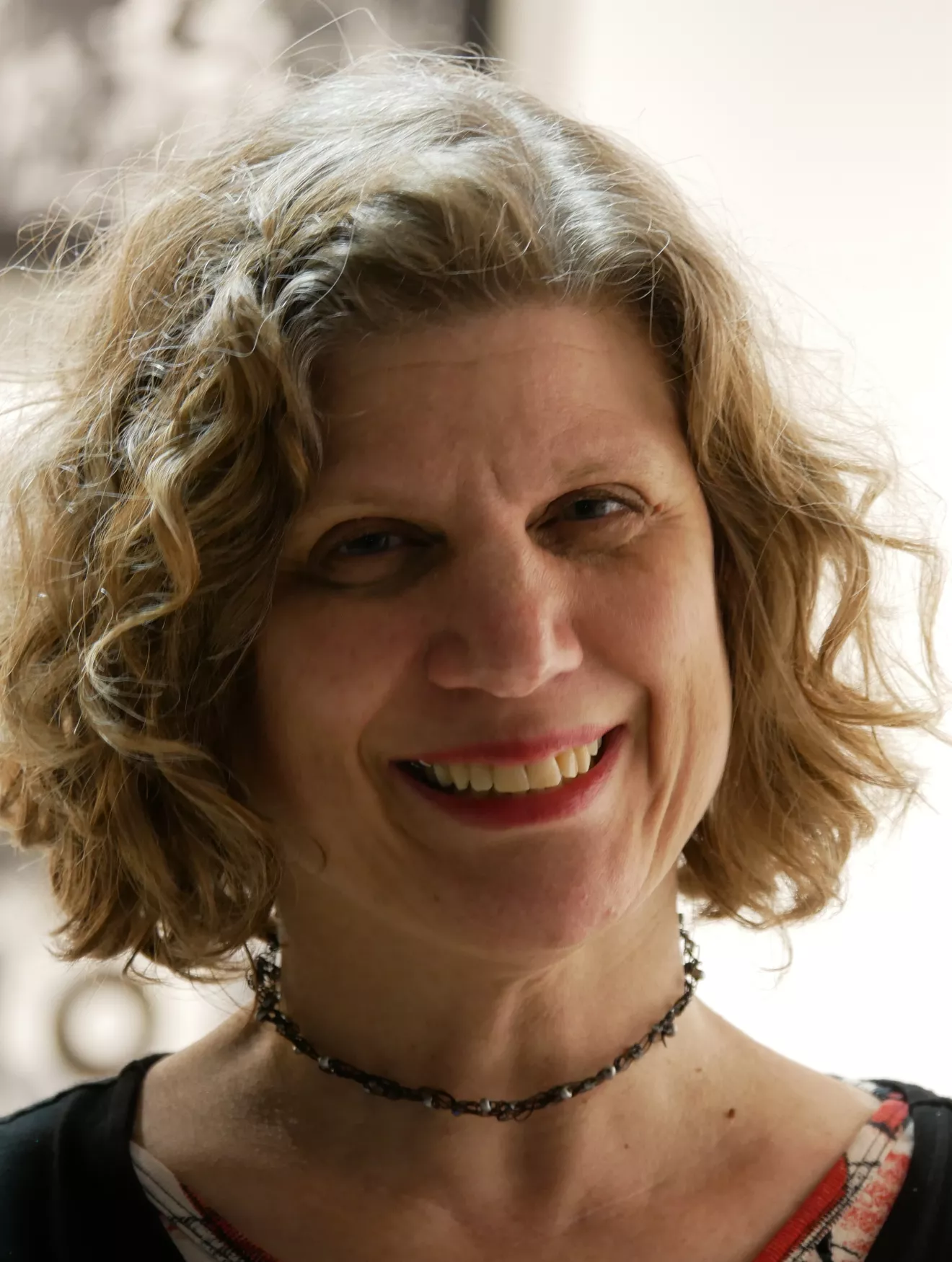
Julia Moore '83 was a classics major at Bryn Mawr and now works as director of public art at the Arts Council of Indianapolis.
Julia is returning to campus along with Tessa Hass ‘18, Rayna Andrews ’11, Michelle Joan Wilkinson '93 and Caroline Cassidy '16 as part of the Career & Civic Engagement Center’s Listen, Learn, and Connect program on March 31, at 7 p.m. via Zoom.
Panelists will talk with students about career paths in the arts and in museum curation, programming, and archiving. Students can learn more and register via Handshake.
In the below Q&A, Julia talks about finding her career passion, the value of attending a women's college, and more.
How did you get involved in your current field?
I always knew I'd be in the arts or museums in some way, but getting into public art was kind of accidental. I'd been doing curatorial work with short-term exhibitions and ended up doing a couple of projects that were larger, more long-term, and more involved on my end. They were exhilarating, and I learned so much more about project management, construction, and making things happen than I'd been doing before. And the partnerships were super rewarding. After that I was hooked. I applied for a job doing nothing but managing new public art for one site (a $4M project), and although that was a known four-year project, I ended up simultaneously, and subsequently, doing additional projects and now I'm in charge of public art for the Arts Council.
What part of your Bryn Mawr experience has been most important to your professional development?
For what I do, every project is like starting from scratch with new people, new intellectual and technical demands, and a new community context. Bryn Mawr taught me how to get up to speed on new ideas and new skills very, very quickly, and how to hold myself to a very high standard of work. I don't think I could have managed my career without knowing how to do either. And my "fun" extracurricular work as a stage manager at Bryn Mawr taught me how to manage a lot of details and specialists, and the importance of being aware of as much information as possible, whether it's immediately relevant or not.
What career advice do you have for current Bryn Mawr students?
I would say to have a direction, but always be open to serendipity. My career has been a series of mostly lateral moves that seemed random or illogical on the outside, but I knew I had to take chances when they were offered. You know yourself and your abilities best. And don't discount the importance of keeping yourself interested in your work—sometimes a sideways shift that teaches you something new is better than moving up the ladder and losing what motivated you about the work in the first place.
What made you choose to attend Bryn Mawr?
I was accepted to several Seven Sisters schools that would have been equally challenging and beneficial, but I was 16 when I started school and I didn't want to be too far away from home just in case something didn't work out. I knew I wanted a more expansive campus-type environment, which left out one of them. BMC was a comfortable three-hour drive from where my folks lived, I could get there and back by myself on a train without needing to be driven, I liked all the programs, it was drop-dead gorgeous, and was within easy reach of a big city without being overwhelmed by it. I felt it was the best choice for me.